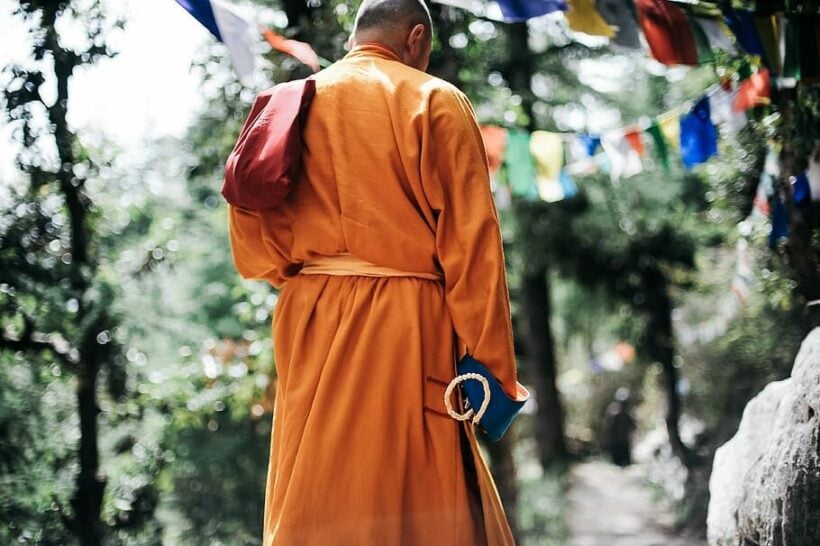Thailand’s fusion of religious beliefs: Buddhism, Animism and Brahmanism

Thailand’s people are known for being devout Theravada, or orthodox, Buddhists. In fact, the country’s government is a theocracy in which many public holidays and ceremonies are officially recognised in its calendar of events. Schools close and government institutions shut down in order to give its residents the day off to celebrate and to take part in national Buddhist ceremonies.
But upon strolling through the temple-adorned cities and villages, it becomes hard to distinguish if everything you see is connected to traditional Buddhism. In fact, Thai people classify themselves as adherents to Buddhism, but many things they believe and practice, are inherently part of Brahmanism, an early form of Hinduism, as well as folk animist religions. Such folk animist religions are better known as Animism.
Animism is best described as the worship of spirits, or ghosts. The word Animism comes from the Latin word anima and means breath, spirit, and life. Animists are said to believe that almost everything possesses a spirit including plants, animals, rocks, rivers, wind, sun, and other inanimate natural objects and that the physical world and spiritual world are intertwined.
Animists say what they practice isn’t a belief system, but more of a worldview. In essence, the worldview means: The world is a sacred place, and we are part of it. Furthermore, it can be considered as more of a value system over any other kind of adherence.
Satsana Phi, is the Thai word for the belief system that worships spirits. Animism is included in Satsana as it involves using shamans and the worship of ancestors. Satsana followers believe that buildings, territories, things, and natural places all have tutelary gods or supernatural deities residing in them.
Animism believes that there are guardian spirits of people, which often include ancestors or angelic-beings who arrive at various points in life, better known as thewada. Malevolent spirits, phi phetu, include those khwan of people who were bad in past lives or died of tragic deaths. Khwan, is the finite amount of spirit that exists within an individual, with Thais believing that the khwan has the ability to wander or escape from the body.
It is believed that a spirit that is suffering from demerit could be a dangerous ghost, while those who have merit are thought to be good ghosts. Preta, the ghost, for example, is said to be stuck in the stage of liminality, or the right of passage, and wanders the human realm hoping to gain the merit needed to pass through. Thailand’s most famous ghost, Mae Naak Phra Khanong is feared by many, although it is believed that she corrected her past lives and gained merit.
Since Thais practice the worship of their ancestors as part of Animism, one popular ancestor, who was part of the Thai monarchy, is the late King Chulalongkorn. And, generally speaking, Thai people practise venerating dead Theravada Buddhist monks who are thought to possess supernatural powers.
Examples of Animism can be seen around Thailand if you know what to look for. Things such as spirit houses, or phi houses adorn almost every building or home, in what Thai people say, is an attempt to appease the property’s spirit. Thais will offer food and drinks to the miniature shrines daily and ask for protection from the ghosts that are thought to inhabit the houses. Guardian deities of places, such as the phi wat of temples and the lak mueang of towns are celebrated with communal gatherings and offerings of food.
Apart from Animism and Buddhism, Brahmanism is another belief system that is fused together with other practises by the Thai people. Brahmanism, like Animism, practices focus on the thewadas, which are angelic beings or gods. Thais look to these deities to ensure health, prosperity, and good luck. Such gods as Bhrama and Indra are examples of popular deities.
Interestingly, almost all ceremonies in Thailand that commemorate the various points in the life cycles and season cycles are rooted in Brahmanism, not Buddhism. One ceremony, The First Plowing or Raek Na Kwan in Thai, was actually adopted by the Thai royal court with its auspicious day and hour still set today by Brahman astrologers.
Thais also consider astronomical, heavenly bodies to be deities. This can include material astronomical objects as well. One example is of Rahu, who is considered the god of luck and fortune and is often worshipped in the central areas of Thailand. The worship of planetary deities is sometimes linked to the Hindu belief in Navagraha, which recognises 9 heavenly bodies as deities. For almost every ceremony a monk or a Brahmin priest will divine an auspicious time. Thailand’s current King was invested as Crown Prince at an auspicious time given by a royal astrologer.
Other practices by the Thai people include following pre‐Buddhist traditions such as monks wearing robes and shaving their heads. This sight is often thought of as part of Buddhism, but it actually stems from the Semana tradition which predates Buddhism by about 4,000 years. Holy Days, or Uposatha, in Thai, which are designated for observing half and full moons, were also derived from pre‐Buddhist times. In Thailand these are called the Wan Phra, with Thais traditionally visiting temples in white clothes on these days.
Obviously for anyone visiting the Land of Smiles, determining what belief systems the Thai people have can be daunting. Thais don’t have a word for Animism in their language and tend to classify all of their adopted belief systems under Buddhism. And, indeed, this may be the best way to describe Thailand’s fusion of beliefs and practices. The reasoning behind using Buddhism as an umbrella term is due to other adopted belief systems all sharing similar components with the kingdom’s officially recognised ‘religion’ (although Buddhism is not generally considered a religion in the same vein as Abrahamic religions).
Buddhism, Animism, and Brahmanism (or Hinduism), all incorporate the worship of spirits and gods who may or may not have merit or good karma. Such beings are used by the Thai people to ask for protection, luck, riches, health and help with moving on to the next life. However, because Animism is strictly based upon the worship of spirits, who may or may not be controlled, it is thought of as being less certain to aid Thai people in their quests for a better life.
Animism also stands in contrast to Buddhist values such as sobriety and self‐control as animist rituals encourage the use of whisky, dancing, and smoking. Regardless of the differences between Animism and Buddhism, monks still play a vital role in both practices. However, at the end of the day, most Thais believe that being a devout Buddhist will lead to them possessing the strongest magical powers.
Latest Thailand News
Follow The Thaiger on Google News:


























